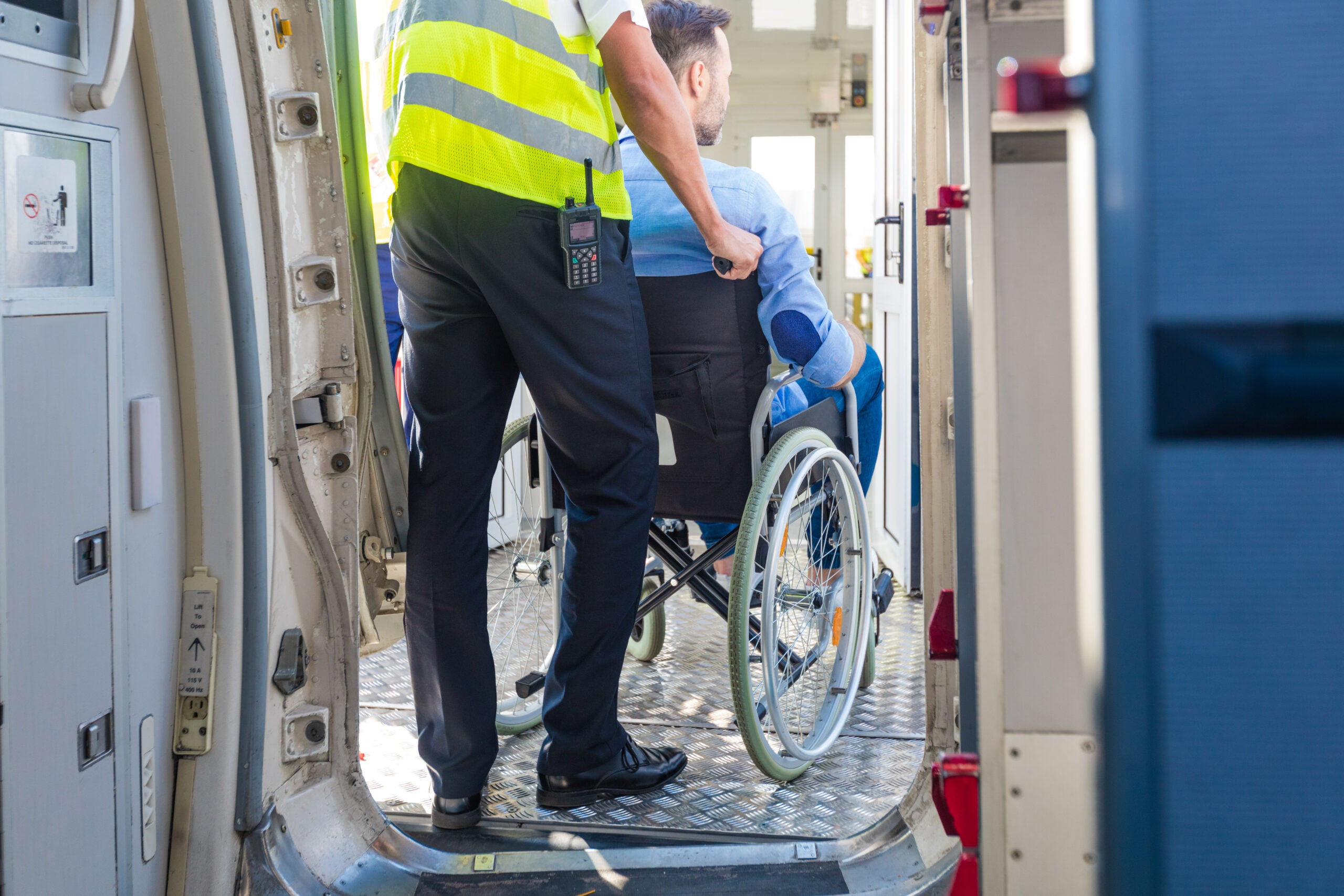Dot Announces New Protections For Airline Travelers With Disabilities

The Department of Transportation announced new protections on Monday for commercial airline travelers with disabilities, finalizing a series of proposals that was first laid out earlier this year.
Under the new rules, airlines must meet new standards for accommodating passengers who use mobility devices such as wheelchairs, as well as new minimum standards for helping passengers if something goes wrong — such as a wheelchair being lost or damaged — along with training requirements for employees.
The rules go into effect on Jan. 16.
When things go wrong: New airline refund rules are in effect — here’s what you should know
“Every passenger deserves safe, dignified travel when they fly — and we’ve taken unprecedented actions to hold airlines accountable when they do not provide fair treatment to passengers with disabilities,” Transportation Secretary Pete Buttigieg said in a statement. “With the new protections we’re announcing today, we’re establishing a new standard for air travel — with clear and thorough guidelines for airlines to ensure that passengers using wheelchairs can travel safely and with dignity.”
The DOT first proposed the sweeping new rules in February of this year, characterizing them as “the largest expansion of rights for airline passengers who use wheelchairs since 2008.” The rules essentially set a framework for how the agency enforces parts of the Air Carrier Access Act, which prohibits airlines from discriminating against passengers because of a disability. In February, Buttigieg said that violations could entail fines of potentially over $100,000 per incident.
The finalized rules require airlines to provide “safe and dignified” assistance for passengers with mobility impairments and mandate “prompt” assistance boarding, deplaning and making flight connections. Airlines will also be required to quickly return wheelchairs that are lost or damaged and to provide speedy repair or replacement when necessary.
The rules go further by calling for airlines to provide appropriate loaner wheelchairs when needed and to reimburse fare differences if a passenger pays more to fly on a bigger aircraft with enough space in the cargo hold for larger wheelchairs.
Passenger protections: DOT proposes compensation for flight delays, but Trump administration will get final say
While most wheelchairs arrive at their destination safely — in 2023, 835,327 wheelchairs were carried by the 10 biggest airlines, according to DOT data, and 11,527, or 1.38 percent, were damaged, lost or significantly delayed — any mishandling can have severe consequences for passengers, particularly those who use customized or more advanced wheelchairs.
While the rate of mishandling decreased slightly from 2022 to 2023, it remains an ongoing problem within the travel world. The DOT in recent years has proposed a variety of new regulations surrounding wheelchair travel, while airlines and aerospace firms have introduced a variety of proposals and tools aimed at wheelchair users.
United Airlines introduced a tool earlier this year that allows passengers to enter their wheelchair’s dimensions or specifications when searching for a flight and filter results to only include aircraft large enough to accommodate the devices.
Delta Air Lines, meanwhile, is developing a new type of onboard seat that could secure certain types of wheelchairs while on board, allowing passengers to bring their wheelchairs into the cabin and sit in them during flight. The design, which is under development by the airline’s subsidiary innovation studio Delta Flight Products, is currently in a prototype form — TPG had a chance to see the prototype earlier this year.
Related reading:


